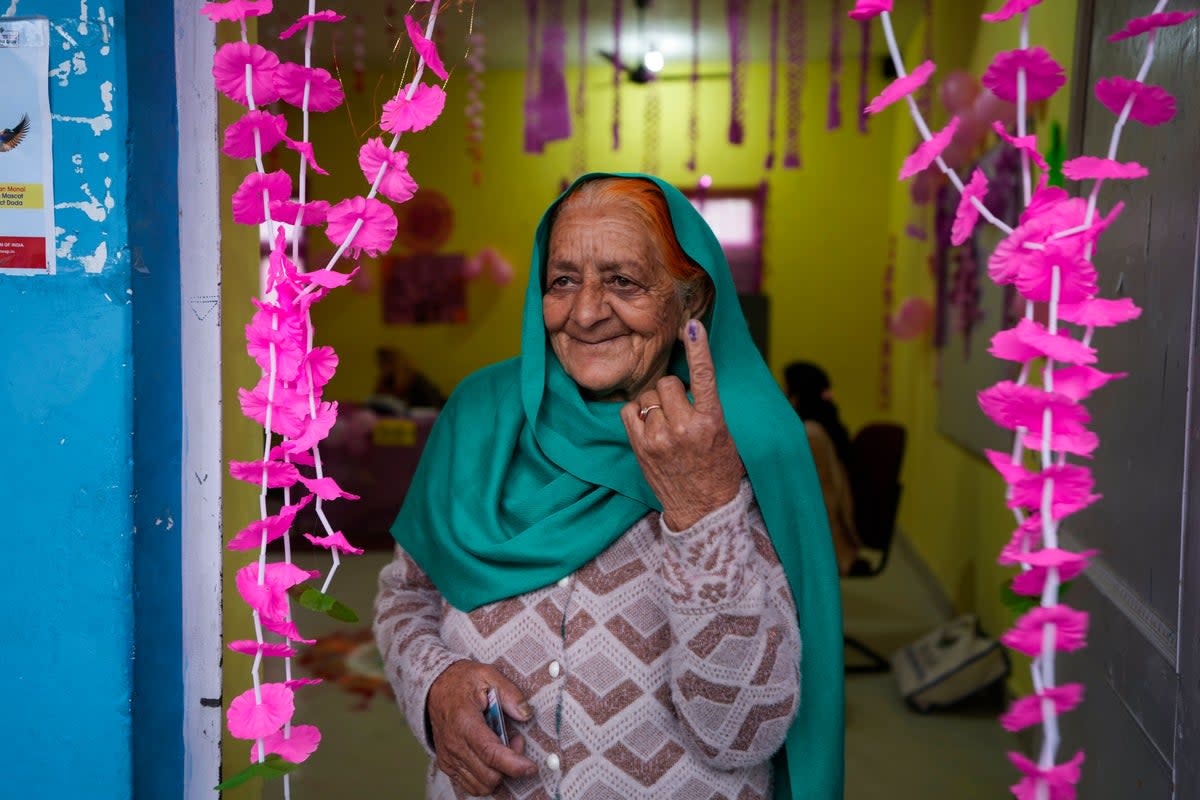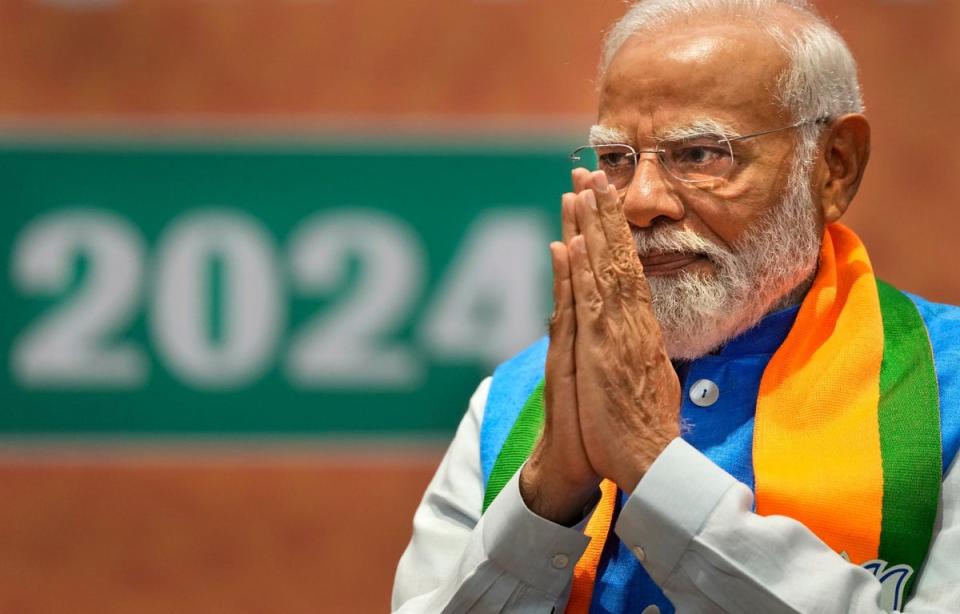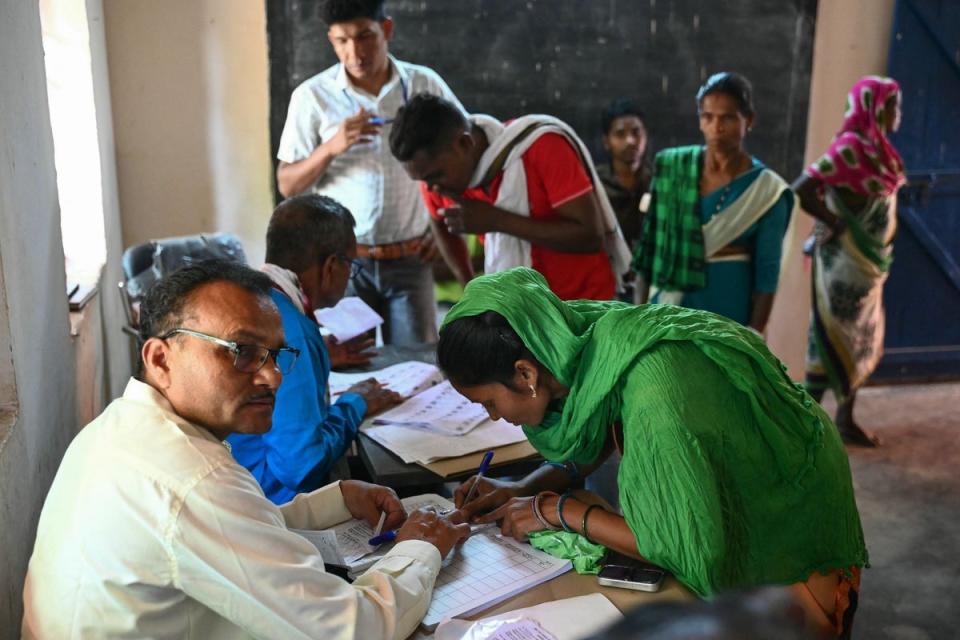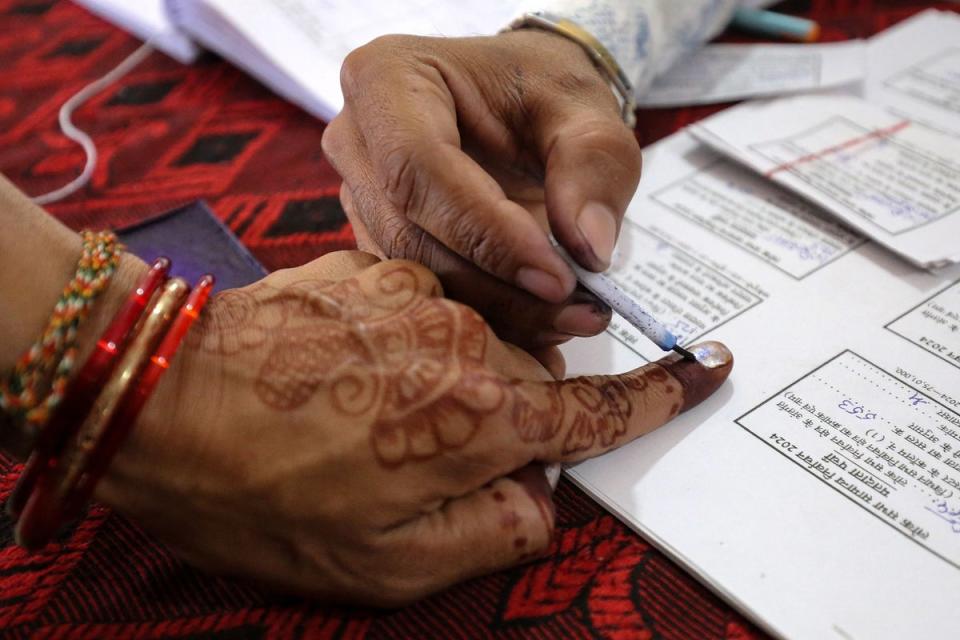World’s largest election under way as India’s Narendra Modi seeks third term

Tens of millions began voting in India as the world’s biggest election became a referendum on populist prime minister Narendra Modi.
Almost a billion people are eligible to cast their ballots, with Modi, of the ruling Bharatiya Janata Party, seeking a third consecutive term.
He has championed an assertive brand of Hindu nationalist politics.
But voters are concerned about a jobs crisis, rising prices and a clampdown on dissent.
People started queuing up at polling stations hours before they were allowed in at 7am on Friday in the first 21 states to hold votes, from the Himalayan mountains to the tropical Andaman Islands.
Nearly 970 million voters — more than 10 per cent of the globe’s population — will elect 543 members to the lower house of Parliament for five years during the staggered elections that run until June 1. Votes will be counted on June 4.
Several key opposition parties have formed an alliance led by the Indian National Congress in many states to take on Modi’s BJP.

If Modi wins, he’ll be only the second Indian leader to retain power for a third term, after Jawaharlal Nehru, the country’s first prime minister.
Most polls predict a win for Modi.
It’s not clear who will lead India if the opposition alliance, called INDIA, is victorious. More than 20 parties have not put forward a candidate yet.
The BJP controls much of India’s Hindi-speaking northern and central parts, but is now trying to gain a foothold in the east and south. Their toughest challenge is in the southern Tamil Nadu state, with 39 seats, where voting is being held.
Voters in hot and humid Chennai, the state’s capital, began briskly filling the city’s nearly 4,000 polling booths.

A number of them said they were voting for a change in federal government given rising prices, unemployment and religious polarisation stoked by the BJP.
Mary Das, 65, who was waiting in line, said: “First thing I came to vote for is to have a country without any religious disharmony. In Tamil Nadu — Hindus, Muslims, Christians, we’re all together. And this unity should grow.”
In Rajasthan, people returning from polling stations covered their heads against dusty winds.
Atinder Singh, 26, added: “If the new government is able to solve unemployment, then it will be good. People are migrating from this region to earn a living.”
Modi has ratcheted up Hindu nationalist rhetoric on the campaign trail, and has sought to present himself as a global leader. His ministers tout him as the steward of a surging India, while his supporters celebrate his campaign promise to make India a developed nation by 2047, when it marks 100 years of independence.

But while India’s economy is among the world’s fastest-growing, many of its people face growing economic distress.
The opposition alliance is hoping to tap into this, seeking to galvanise voters on issues like high unemployment, inflation, corruption and low agricultural prices that have driven two years of farmers’ protests.
Critics warn that Modi has turned increasingly illiberal and accuse him of using tax authorities and the police to harass the opposition.
They fear a third term could undermine India’s democracy. His Hindu nationalist politics, they argue, has bred intolerance and threatens the country’s secular roots.


